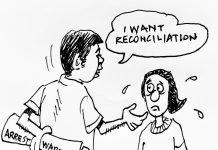
The Israeli-Palestinian conflict has been marked by decades of violence and suffering, with Palestinian civilians being the most affected. As informed citizens, it is crucial to critically analyze the parties involved and make an informed decision regarding support. If people could not stand with Israel, at least they should stand with Palestinian civilians instead of backing Hamas.
To fully comprehend the situation, we should acknowledge the complexity of the Israeli-Palestinian conflict. This dispute calls for a thoughtful and measured approach rooted in historical, political, and religious complexities. Recognizing the suffering endured by Palestinian civilians under Israeli restrictions does not necessitate supporting Hamas, as the latter’s ideology and actions reflect extremism and violence.
Hamas, considered a terrorist organization by many nations, including the United States and the European Union, has been a dominant factor in the conflict. It advocates for the destruction of Israel, undermining the prospects of a peaceful resolution. Hamas’ actions, such as indiscriminate rocket attacks on civilian areas, human rights abuses, and its recruitment of child soldiers, demonstrate its disregard for the well-being of Palestinian civilians.
Supporting Palestinian civilians does not condone Hamas’ violent methods. Rather, it entails recognizing their rights to freedom, justice, and self-determination. Palestinians, especially those residing in the Gaza Strip, face dire socio-economic conditions due to continuous conflict and Israeli-imposed restrictions. By prioritizing their needs and advocating for a just and lasting peace, individuals can contribute to the well-being and rights of Palestinian civilians.
Supporting Palestinian civilians necessitates a push for political dialogue and a diplomatic resolution to the conflict. Hamas’ refusal to recognize Israel’s right to exist and engage in peaceful negotiations has impeded any potential progress. Encouraging dialogue, recognition of international legitimacy, and a commitment to non-violence among parties involved can help pave the way for a lasting resolution.
Promoting humanitarian aid and development initiatives is crucial to alleviating the suffering of Palestinian civilians caught in the crossfire. Emphasizing access to education, healthcare, housing, and economic opportunities can help restore dignity and enhance peaceful coexistence. By supporting such initiatives, countries can work towards a more equitable and prosperous future for all Palestinians.
The international community, particularly influential actors such as the United States and the European Union, should prioritize supporting Palestinian civilians while exerting pressure on Hamas to renounce violence and engage in constructive dialogue. These entities can play a pivotal role in fostering a just solution by engaging in diplomatic efforts and providing avenues for peaceful negotiations. Israel is just compelled to impose restrictions since, through the years, Palestinian militants have been brutally attacking them when the chance comes. Jews also have the right and duty to protect themselves, making sure that violent attacks would not anymore happen.
Yes, stand with noncombatant Palestinian civilians, not with Hamas, in the Israeli-Palestinian conflict if you think you cannot side with Israel. Supporting Palestinians does not endorse violence or extremism but rather acknowledges their rights, recognizes their suffering, and advocates for diplomatic solutions, humanitarian approaches, and meaningful international engagement. By doing so, we can contribute to a more balanced understanding of the conflict and work toward a just and lasting peace that respects the rights and aspirations of all parties involved.



